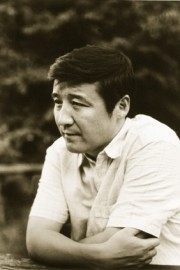창작과비평

왕 후이
汪暉
Hui Wang
왕 후이 汪暉 Hui Wang
1959년 중국 쟝쑤(江蘇)성 양져우(楊州)에서 태어났다. 중국사회과학원 대학원에서 루 쉰(魯迅) 연구로 박사학위를 받았다. 중국사회과학원 문학연구소 연구원, 하바드대학 방문교수 등을 거쳐 현재는 중국 칭화(淸華)대학 중문과 교수로 있으며, 중국 지식인들에게 가장 영향력있는 잡지인 『뚜슈(讀書)』의 편집위원이다. 중국 근대성 문제를 학문적 차원과 현실변혁 차원의 양방향에서 밀고 나가는 대표적인 중국의 비판적 지식인이다. 주요 저서로 『절망에 대한 반항: 루 쉰의 정신구조와 『외침』 『방황』 연구』(對絶望的反抗: 魯迅的精神結構與『吶喊』『彷徨』硏究, 1991) 『왕 후이 자선집』(汪暉自選集, 1997) 『꺼진 불 다시 살아나』(死火重溫, 2000), 『현대중국사상의 기원』(現代中國思想的興起, 2003) 등이 있다.
Born in 1959 in Yangzhou, Jiangsu, China, Hui Wang obtained a doctoral degree with his dissertation on Lu Xun at the Chinese Academy of Social Sciences. After serving as a researcher in the Institute of Literature at the same institution and a visiting fellow at Harvard University, he is currently a professor of Chinese literature at Tsinghua University in Beijing and the senior editor of the monthly Reading (Dushu). the most influential journal among Chinese intellectuals. A representative critical intellectual who grapples with the issue of modernity in China both academically and socially, he has penned Resistance against Despair: A Study of Lu Xun’s Mental Structure and “Call to Arms” and “Wandering” (Chinese; 1991), The Gradual Revolution: China’s Economic Reform Movement (English; 1994), Selected Writings of Hui Wang(Chinese; 1997), Dead Fire Comes Alive(Chinese; 2000), and The Origins of Contemporary Chinese Thought (Chinese; 2003), China’s New Order: Society, Politics, and Economy in Transition (English; 2003).